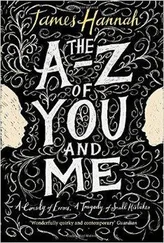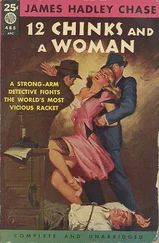James Hannay - Wilmot and Tilley
Здесь есть возможность читать онлайн «James Hannay - Wilmot and Tilley» — ознакомительный отрывок электронной книги совершенно бесплатно, а после прочтения отрывка купить полную версию. В некоторых случаях можно слушать аудио, скачать через торрент в формате fb2 и присутствует краткое содержание. Жанр: foreign_prose, foreign_antique, на английском языке. Описание произведения, (предисловие) а так же отзывы посетителей доступны на портале библиотеки ЛибКат.
- Название:Wilmot and Tilley
- Автор:
- Жанр:
- Год:неизвестен
- ISBN:нет данных
- Рейтинг книги:3 / 5. Голосов: 1
-
Избранное:Добавить в избранное
- Отзывы:
-
Ваша оценка:
- 60
- 1
- 2
- 3
- 4
- 5
Wilmot and Tilley: краткое содержание, описание и аннотация
Предлагаем к чтению аннотацию, описание, краткое содержание или предисловие (зависит от того, что написал сам автор книги «Wilmot and Tilley»). Если вы не нашли необходимую информацию о книге — напишите в комментариях, мы постараемся отыскать её.
Wilmot and Tilley — читать онлайн ознакомительный отрывок
Ниже представлен текст книги, разбитый по страницам. Система сохранения места последней прочитанной страницы, позволяет с удобством читать онлайн бесплатно книгу «Wilmot and Tilley», без необходимости каждый раз заново искать на чём Вы остановились. Поставьте закладку, и сможете в любой момент перейти на страницу, на которой закончили чтение.
Интервал:
Закладка:
CHAPTER II
EARLY EFFORTS FOR REFORM
THE agitation for an improvement in the constitution of New Brunswick began long before L. A. Wilmot was born. The first man who took a prominent stand for reform in the legislature was Mr. James Glenie, a member for the county of Sunbury from 1792 to 1809. Mr. Glenie, who was a Scotchman and a man of much ability, had been an officer in the Royal Engineers during the Revolutionary War. His efforts to obtain reforms were met by the friends of the governor, Mr. Carleton, with the most violent opposition. He was denounced as an incendiary, and indeed there was hardly a limit to the fierceness with which he was attacked for attempting to bring about an improvement in the system of government. The old Family Compact and their friends were ever ready to tell the public how loyal they were, and to denounce as a traitor any person who presumed to object to the existing state of things. Mr. Glenie was not able to effect anything substantial for the improvement of the constitution, because the time was not ripe for the changes he proposed. England itself was suffering at that time from a relapse from true constitutional methods, so it was not to be expected that much attention would be paid to complaints which came from a remote province of North America.
The cause of Reform would not have been nearly so well supported as it was, had it not been for the fact that the abuses which existed touched the self-interest of many persons who were by no means Reformers at heart, and who in fact cared nothing about responsible government. The first successful attack which was made on the existing order of things was with regard to the fees charged on land grants. These fees went to the various officials, including the governor, and it was shown that on a lot of land not exceeding three hundred acres, the enormous sum of forty-seven dollars was charged as fees, while on a lot of one thousand acres to ten grantees, the fees amounted to about two hundred dollars. The reader will be able to understand from these figures how it was that the officials of the government were able to live in such princely style. This evil was remedied by permission being obtained from the colonial secretary to include a large number of grantees in one grant.
THE MARRIAGE QUESTION
Another grievance which was attacked long before Mr. Wilmot entered public life was the law which related to the performance of the marriage ceremony. At that time the only clerical persons authorized to solemnize marriages were the clergymen of the Church of England, ministers of the Kirk of Scotland, Quakers, and priests of the Roman Catholic Church. This was felt to be an intolerable grievance, because it prevented Methodists, Baptists and all Presbyterians except those connected with the Church of Scotland from being married by their own ministers. In 1821 a bill was passed in the House of Assembly authorizing all ministers of the Gospel to solemnize marriages. This was rejected by the council, a fate which befell many subsequent bills of the same kind. For several years the House of Assembly continued to pass the Dissenters' Marriage Bill, and the council as steadily rejected it. Finally, in 1831, the House of Assembly concluded that nothing would serve to bring about the reform asked for but a petition to the king, and accordingly a petition was prepared in which the facts were set forth and His Majesty was asked to give instructions to the administrator of the government to recommend the legislature to pass a bill extending the privilege of solemnizing marriages to all regularly ordained clergymen of dissenting congregations in New Brunswick. In 1832, a bill was passed by both Houses carrying out these views. It contained a suspending clause, however, which prevented it from going into operation until approved by His Majesty. It was thought that this would settle the question, but in 1834 a despatch was received from His Majesty's secretary of state for the colonies in which it was announced that the royal assent had been withheld on the ground that the Act was confined in its operation to four denominations of Christians,—the Wesleyan Methodists, the Baptists, the Presbyterian seceders from the Church of Scotland, and the Independents. It appeared, therefore, that the Act had been disallowed because it was not liberal enough, but this defect was speedily remedied by the passage of another bill during the session of 1834 in the terms suggested by the colonial secretary, and the Dissenters' Marriage Question was thus settled.
IMPERIAL CUSTOM DUTIES
It has already been stated that the British government continued to maintain a custom-house establishment in New Brunswick, and to impose duties on goods imported into the province. These duties, which were levied for the regulation of trade, were disposed of by the British government and by the lieutenant-governor of the province with little reference to the wishes of the legislature. The old restrictive system which placed shackles on trade was modified by two Acts passed by the imperial parliament in 1822, under which the importation of provisions, lumber, cattle, tobacco and other articles from any foreign country in North and South America and the West Indies, into ports of British North America and the British West Indies, was allowed under a fixed scale of duty, and a free export was allowed to goods going from all our ports to these countries. The importation of the productions of foreign countries in Europe into the ports of British North America was also permitted, and a schedule of duties annexed. Under these Acts it was provided that the duties on both imports and exports were to be collected by the imperial officers of customs, and the net revenue thus obtained was to be placed at the disposal of the colonial treasuries. This arrangement was a decided gain to New Brunswick, because, for the first time, it placed nearly all the revenue collected by the imperial officers under the control of the legislature.
The Acts of the imperial parliament, 6th George IV, Chapters 73 and 114, went still farther in the way of removing restrictions from colonial trade. These Acts provided that the duties imposed under them should be paid by the collector of customs into the hands of the treasurer or receiver-general of the colony, to be applied to such uses as were directed by the local legislature of such colony, exception being made in regard to the produce of duties payable to His Majesty, under any Act passed prior to the eighteenth year of his late Majesty, George III. This exception is important for the purpose of illustrating the pernicious system under which duties had been collected. Even so late as the year 1833, Messrs. Simonds and Chandler, the New Brunswick delegates to the imperial government, were complaining that duties were collected at the several custom-houses in New Brunswick upon wine, molasses, coffee and pimento under the provisions of the Acts of parliament, 6th George II, Chapter 13; 4th George III, Chapter 15, and 6th George III, Chapter 52, amounting to upwards of one thousand pounds sterling annually, which duties were not accounted for to the legislature, and that it was not known to the House of Assembly by whom and to what purpose these duties were applied. The reply to this on the part of the imperial government was, that in pursuance of the directions contained in the statutes themselves, the duties levied under them were remitted to the exchequer in England in aid of the expenses incurred for the defence of the British colonies in North America. Thus ten years after the British government had undertaken to remit the duties collected in the colonies to the exchequers of the colonies in which the money was collected, there still remained a considerable revenue, obtained under old and obscure Acts of parliament, which was held back, and the destination of which was not known, until disclosed to the delegates sent to England to obtain the redress of New Brunswick's grievances.
Читать дальшеИнтервал:
Закладка:
Похожие книги на «Wilmot and Tilley»
Представляем Вашему вниманию похожие книги на «Wilmot and Tilley» списком для выбора. Мы отобрали схожую по названию и смыслу литературу в надежде предоставить читателям больше вариантов отыскать новые, интересные, ещё непрочитанные произведения.
Обсуждение, отзывы о книге «Wilmot and Tilley» и просто собственные мнения читателей. Оставьте ваши комментарии, напишите, что Вы думаете о произведении, его смысле или главных героях. Укажите что конкретно понравилось, а что нет, и почему Вы так считаете.












